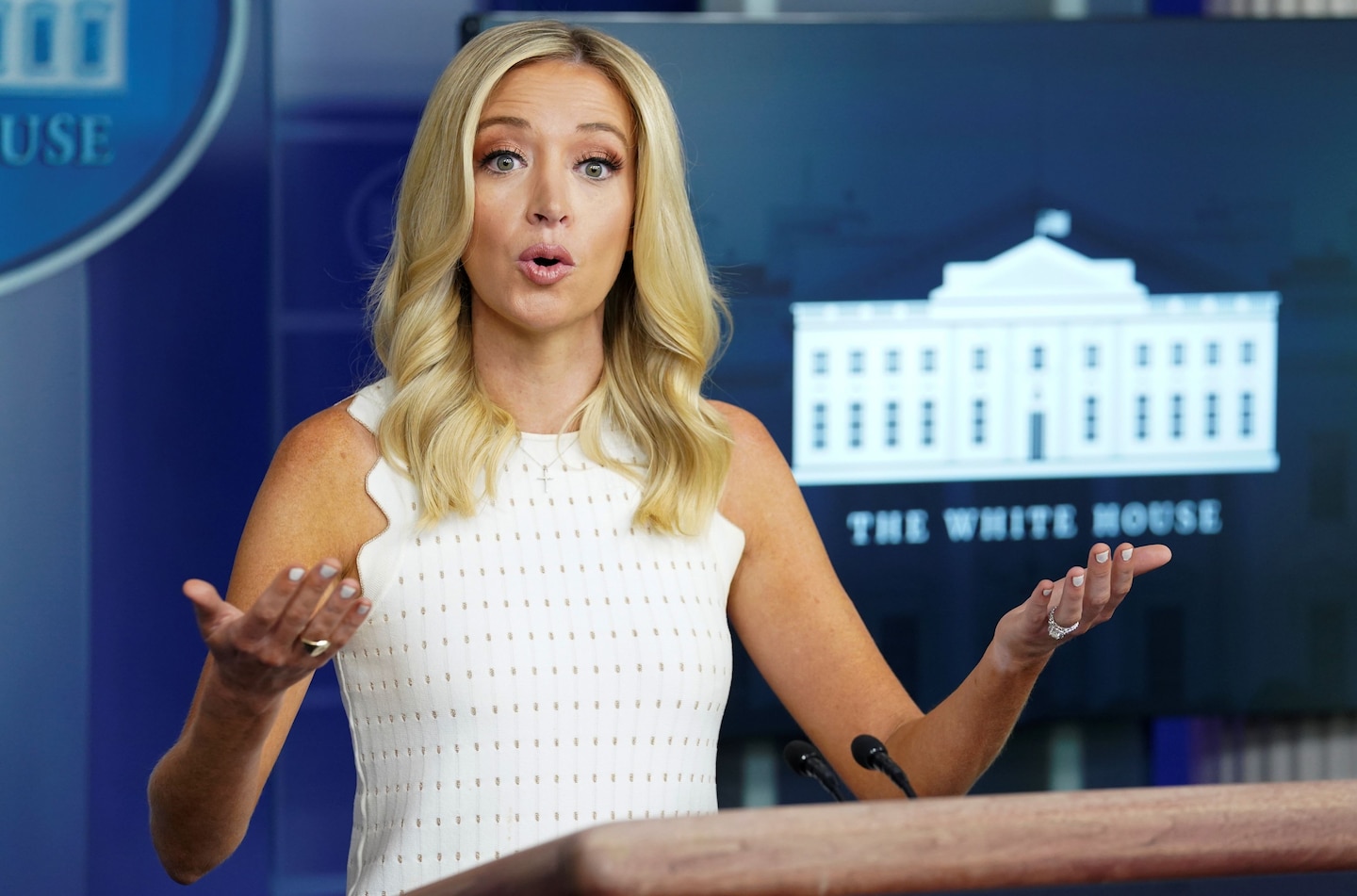It’s the duty of the White House press secretary to hold briefings. But not like this.

“This vision is not a culture war, as the media seeks to falsely proclaim,” McEnany said. The very next day, in an interview with RealClearPolitics, the president said: “We are in a culture war.”
Such head-spinning contradictions are routine at Trump White House briefings, where the press secretary often admonishes reporters for asking about the president’s exact words.
At one recent briefing, reporters asked McEnany to explain a presidential tweet, sent a few hours earlier, maligning NASCAR driver Bubba Wallace — the circuit’s only full-time black driver — suggesting he had perpetrated a “HOAX” and calling on him to apologize.
Although the president had written “That & Flag decision has caused lowest ratings EVER!” McEnany denied that the president had criticized NASCAR’s decision to ban the Confederate flag at its events. (For the record, Trump was wrong, and NASCAR’s ratings rose after its ban.)
I decided to follow up.
“What is the president’s position?” I asked. “Does he think NASCAR made a mistake by banning the Confederate flag?”
None of the words she said in reply answered my question. So I tried again.
“But what is his position on it?”
McEnany could have said that the tweet speaks for itself. Instead, she attacked the question.
“You’re focusing on one word at the very bottom of a tweet that’s completely taken out of context,” she said.
A few things are important here: The issue wasn’t one word, and it wasn’t taken out of context. The White House press secretary was denying the president’s own words and failing to answer legitimate questions about something he had done hours earlier. The denial of reality was frustrating, but McEnany’s silence was illuminating, as it suggested that the president’s position is so politically toxic that his spokesperson thinks she shouldn’t defend or even acknowledge it.
But the most troubling moment that day came as McEnany ended the briefing.
“You know,” she said, “I was asked probably 12 questions about the Confederate flag. This president is focused on action, and I’m a little dismayed that I didn’t receive one question on the deaths that we got in this country this weekend. I didn’t receive one question about New York City shootings doubling for the third straight week.”
This statement seemed to suggest that reporters don’t care about people getting killed. But, really, it was an attempt to mislead people about the purpose of a White House briefing. Rising crime rates are an important issue, but the administration wasn’t offering any new policy to address it; the press secretary is there to answer questions about the actions of the president and his administration.
As a reporter and president of the White House Correspondents’ Association, I have often advocated a return of regular briefings by the White House press secretary, which lapsed in early 2018. The merits of the briefings over the years can be debated, but I think the White House spokesperson has an obligation to regularly answer questions about the policies and pronouncements of the executive branch.
The White House press secretary’s job differs fundamentally from that of a spokesperson for a candidate or political party. The White House press secretary serves at the pleasure of a president but is also a public servant whose salary is paid by taxpayers. The job is to inform the public: to be an intermediary between the president and a press corps the public relies on for information. As former White House press secretary Mike McCurry has pointed out, this intermediary role is embedded in the layout of the West Wing; the press secretary’s office is midway between the Oval Office and the briefing room.
Denying reality and using the White House podium for purely political purposes is a violation of public trust.
Briefings under the current press secretary rarely last 30 minutes — which is short by traditional standards — but routinely include opening and closing messages that more closely resemble the monologues of a partisan political talk show than a public official’s briefing.
Recently, McEnany stepped to the microphone and declared, “I am pleased to inform everyone that Seattle has been liberated.” She called the so-called autonomous zone of about six city blocks that had been occupied by protesters “a failed four-week Democrat experiment by the radical left” and implied that “liberation” was credited to her boss: “President Trump set the tone: Law and order must prevail to preserve peace in our streets.”
Seattle’s Democratic mayor ordered the removal of protesters, and its police chief oversaw the police action. The federal government was not involved. But like so much else, this opening monologue wasn’t about briefing the media; it was about making a political point.
I still believe it is the duty of a White House press secretary to regularly hold briefings — but not like this.
Read more:






